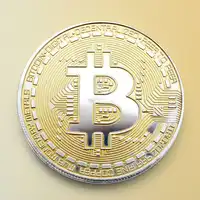The appeal of evading surveillance or concealing activities through Bitcoin might attract certain individuals, particularly those with a need to hide their actions. Criminals and individuals wishing to avoid government scrutiny find Bitcoin appealing due to its anonymity, making it a favored cybercurrency among such groups.
However, it is crucial to recognize that the majority of people have no use for such anonymity and do not perceive it as a beneficial feature. Therefore, the widespread adoption of Bitcoin as a mainstream currency remains limited, as its primary appeal lies within a niche market.
Enthusiasts who envision Bitcoin significantly impacting currency markets or becoming a preferred method for online transactions must acknowledge that achieving this goal will depend on more than just anonymous transactions. The current market for such transactions is relatively small, making it unlikely for Bitcoin alone to spearhead substantial changes in the currency landscape.
Despite its narrow appeal, Bitcoin may possess potential beyond anonymity, theoretically serving as a foundation for an economic ecosystem. However, achieving this vision demands significant changes and improvements. Building a future where Bitcoin becomes a primary currency choice for a broader range of people necessitates addressing existing limitations and hurdles that currently hinder its mainstream integration.

It Really is a Head to Head Battle
When individuals make rational decisions about currency choice, they typically opt for the currency that offers the greatest utility. Traditional hard currencies currently dominate the market, and disrupting their widespread use would require significant effort. This is especially true in limited situations like online purchases.
In the realm of face-to-face payments, the potential exists for merchants to accept payments from bitcoin wallets. As consumer demand for this payment method grows, wider adoption by merchants may follow suit.
Ultimately, the market determines which currencies merchants accept. While factors such as costs and ease of use influence their decisions, consumer demand plays a crucial role. Merchants would prefer cheaper payment options but may lose business if they don’t accept popular methods like credit cards. The cost of lost business becomes more significant than the additional transaction costs.
For bitcoin to compel merchants to accept it or face losing business, it needs to achieve a level of popularity where not accepting it becomes a greater concern than the effort involved in accepting bitcoin payments. Currently, we are far from reaching this point, but it remains a possibility in the future. The key question is what changes would need to occur for enough people to prefer bitcoin over domestic currency, and substantial transformations would be necessary for this scenario to materialize.
Hard currency currently enjoys a significant advantage, primarily because the vast majority of people receive their income in hard currency. Making purchases in a different currency entails currency conversion, which involves efforts and conversion charges. All currency conversions come with fees, typically in the form of spreads set by banks or other institutions that buy and sell currency at different rates, aiming to make a profit. Businesses seek profits to cover their costs and secure at least a modest return on their efforts.
It All Starts with The Currency of the Money You Receive
Indeed, the transition from traditional hard currency to bitcoin as a primary payment method in the employment context would be a significant challenge for most employers. Businesses generally prioritize efficiency, and adopting alternative currencies like bitcoin for payroll would involve considerable inconvenience and cost, especially for employers who primarily receive their funds in hard currency.
Hard currencies have deep-rooted integration into our economic system, making a swift and widespread change unlikely. For a shift to occur, there would need to be substantial demand from employees and enough competitive employers offering bitcoin payments to create a scenario where businesses feel compelled to provide it as an option.
The default position of receiving payment in a particular currency gives that currency a substantial advantage over alternatives. People tend to stick with what they know and what requires minimal effort. Converting to another currency necessitates additional steps and expenses, making it less appealing to most individuals.
Bitcoin as a Practical Alternative Payment Option
While progress has been made in terms of the number of merchants accepting bitcoin for online payments, it is still a relatively small percentage compared to traditional payment methods like credit cards.
One of the main challenges in growing bitcoin’s presence as a payment method is the need for it to be accepted in more places, ideally becoming a universally recognized payment option for online purchases. However, efficiency is another critical factor. If bitcoin transactions take significantly longer to confirm compared to credit card payments, both customers and merchants may be reluctant to use it.
The confirmation time for bitcoin transactions has improved, but it still lags behind the speed of credit card transactions. Face-to-face transactions would be particularly impractical due to the longer confirmation times. While other cryptocurrencies are actively working to address scalability and practicality concerns, bitcoin’s current structure makes it challenging to compete with traditional payment methods.
Given these limitations, it is unlikely that bitcoin will become more than a niche payment method. Its potential as an alternative currency becomes more evident in situations where domestic currencies suffer from inflation or hyperinflation, making bitcoin a desirable alternative.




